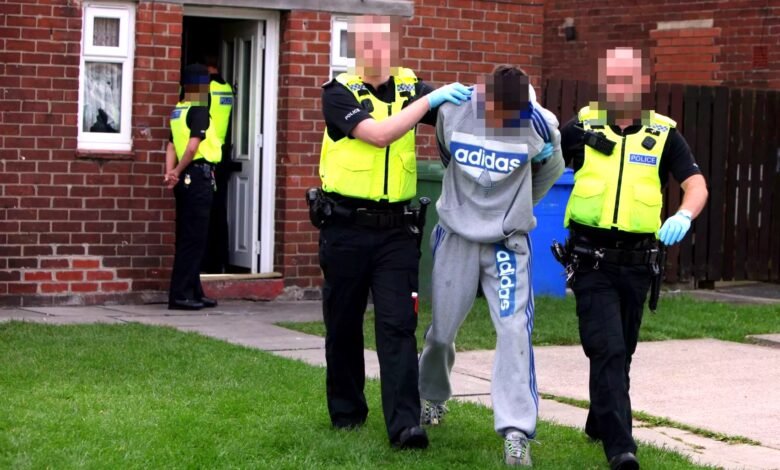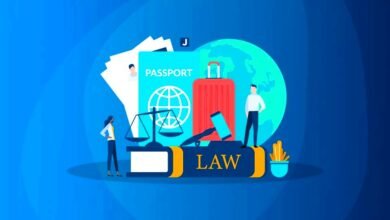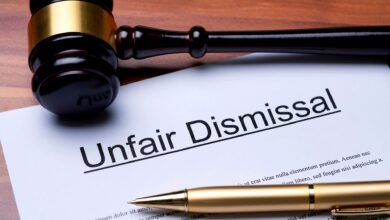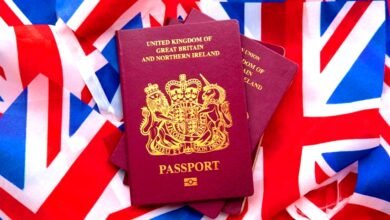Arrested in Wales? Your Rights Under Welsh Criminal Law
This comprehensive guide will explain your rights from the moment you are arrested in Wales, through police custody, and the legal processes that follow.

Getting arrested in Wales can be a frightening and overwhelming experience, especially if you’re unsure about your rights or what to expect next. Whether you’re a local resident or a visitor, understanding your legal protections under Welsh criminal law is essential. This comprehensive guide will explain your rights from the moment you are arrested, through police custody, and the legal processes that follow.
What Does It Mean to Be Arrested in Wales?
When someone is arrested in Wales, it means that the police have taken them into custody because they suspect them of committing a criminal offence. This is a serious legal procedure governed by UK-wide legislation such as the Police and Criminal Evidence Act 1984 (PACE), which also applies in Wales. However, Wales has unique cultural and administrative considerations that might affect how procedures unfold.
Your Fundamental Rights After Being Arrested in Wales
Under UK and Welsh law, the moment you’re arrested in Wales, several core rights are activated to ensure that the arrest is lawful and that you are treated fairly. These include:
- The Right to Be Informed
- The police must inform you that you are under arrest and the reason for your arrest.
- You should also be cautioned using the standard police caution: “You do not have to say anything, but it may harm your defence if you do not mention when questioned something which you later rely on in court. Anything you do say may be given in evidence.”
- The Right to Legal Advice
- You are entitled to free legal advice.
- You can speak to a solicitor privately at the police station.
- You can also have a solicitor present during questioning.
- The Right to Have Someone Informed
- You may request that someone, such as a family member or friend, be informed of your arrest.
- The Right to Interpretation and Translation
- If English or Welsh is not your first language, you have the right to a qualified interpreter.
- The Right to Medical Help
- If you’re unwell or injured, you can ask to see a doctor while in custody.
The Arrest Process in Wales
If you’re arrested in Wales, the process typically follows these steps:
- Detainment and Transportation
- You will be taken to a local police station or custody suite.
- Custody Record
- Details of your arrest, including the time, place, and reason, are entered into a custody record.
- Initial Assessment
- A custody officer will assess whether your detention is necessary and lawful.
- Rights Notification
- You will be informed of your rights again and asked if you want legal representation.
- Interview and Investigation
- You may be questioned under caution about the alleged offence.
Time Limits for Detention Without Charge
In most cases, if you’re arrested in Wales, the police can detain you for up to 24 hours without charging you. In serious cases, this can be extended:
- Up to 36 hours for indictable offences with superintendent approval.
- Up to 96 hours with a magistrate’s permission.
For terrorism-related offences, longer detention periods apply under separate legislation.
Bail and Release Options
After you’ve been arrested in Wales and questioned, the police will decide one of the following:
- Release Without Charge
- Release Under Investigation (RUI)
- Conditional Bail
- Charge and Court Summons
If bail is granted, you must follow specific conditions, such as reporting to the police or avoiding certain people or places. Violating bail conditions can lead to re-arrest.
Arrests Involving Minors
If a child under 18 is arrested in Wales, additional protections apply:
- An appropriate adult (parent, guardian, or social worker) must be present during questioning.
- The arresting officers must notify the child’s guardians immediately.
- The custody environment must be suitable for a minor.
Arrests and Mental Health in Wales
If you are experiencing a mental health crisis when arrested in Wales, police may act under Section 136 of the Mental Health Act. This allows officers to remove you from a public place and take you to a place of safety for assessment.
You also have the right to a mental health professional while in custody if there are concerns about your mental well-being.
Welsh Language Rights
Under the Welsh Language (Wales) Measure 2011, you have the right to use Welsh in dealings with public authorities, including the police. If you’re arrested in Wales, you can:
- Request to be spoken to in Welsh.
- Request Welsh-language documentation.
- Have interviews conducted in Welsh.
This is especially important in communities where Welsh is widely spoken.
Legal Representation in Wales
It’s crucial to consult a criminal solicitor who understands Welsh law and procedures. Many solicitors in Wales are bilingual and experienced in both UK and Wales-specific contexts. Legal aid may be available if you cannot afford a solicitor.
Having an experienced legal adviser is key to ensuring your rights are protected, especially if you’re arrested in Wales on complex charges such as:
- Drug offences
- Violent crimes
- Theft and burglary
- Cybercrimes
- Domestic abuse
Court Procedures Following an Arrest in Wales
If you’re charged after being arrested in Wales, your case will proceed through the court system:
- Magistrates’ Court
- Most criminal cases start here.
- Summary offences (less serious) are dealt with entirely at this level.
- Crown Court
- Indictable offences (more serious) go here.
- Includes jury trials and higher sentencing powers.
- Youth Court
- For defendants aged 10–17.
In court, you have the right to a fair trial, legal representation, and the opportunity to present evidence and question witnesses.
Complaints and Misconduct
If you believe your rights were violated when you were arrested in Wales, you can file a complaint:
- Directly to the Police Force involved
- Independent Office for Police Conduct (IOPC)
- Through Your Solicitor
Common grounds for complaints include:
- Unlawful arrest
- Excessive force
- Denial of legal rights
- Discrimination or harassment
Arrest Records and Disclosure
Being arrested in Wales does not necessarily mean you have a criminal record. However, the arrest will be recorded and may appear in:
- Enhanced DBS checks
- Police National Computer (PNC)
If you were not charged or were found not guilty, you can apply to have the record expunged in some cases.
Arrests Related to Protest and Public Order
Freedom of expression and peaceful protest are protected rights in Wales. However, if public safety is at risk or laws are broken, individuals may be arrested in Wales during demonstrations. Common charges include:
- Breach of the peace
- Obstruction of a highway
- Assaulting a police officer
Know your rights and consult a solicitor familiar with protest law if arrested during civic action.
What to Do If You’re Arrested in Wales
If you or someone you know is arrested in Wales, follow these key steps:
- Stay Calm
- Do not resist arrest.
- Remain respectful and cooperative.
- Request Legal Advice
- Ask for a duty solicitor immediately.
- Exercise Your Right to Silence
- You are not required to answer police questions without legal counsel.
- Document Everything
- Note names, badge numbers, and times if possible.
Summary: Your Rights and Responsibilities
Being arrested in Wales triggers a structured legal process that prioritizes fairness and transparency. Knowing your rights—from the moment of arrest to potential court proceedings—can help you navigate the system more confidently and protect your legal interests.
Key Takeaways:
- You have a right to legal advice and a fair trial.
- Welsh language rights are fully protected.
- Special provisions apply to minors and individuals with mental health issues.
- Legal aid and free legal support are often available.
- Understanding the process can significantly improve your outcomes.
If you’ve been arrested in Wales, don’t face the situation alone. Seek immediate legal representation to ensure your rights are fully upheld throughout the process.











